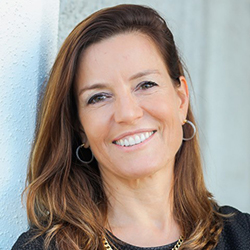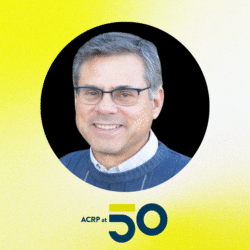Leveraging decentralized clinical trials (DCTs) effectively could help diversify the patient population, create new trial opportunities for sites, and improve quality of operations, says Dr. Pamela Tenaerts, who has just joined Medable as its Chief Scientific Officer. Thought leader Tenaerts’s opinions are fueled by more than 30 years of clinical research experience, most recently as executive director of the Clinical Trials Transformation Initiative (CTTI) at Duke University.
The relative lack of diversity in the clinical trial patient population “has been a problem for years,” Tenaerts notes. “There’s been a greater awareness of it [since] 2020, but something needs to be done,” she says.
She believes increased use of DCT technology and accompanying best practices would help address the diversity challenge, in part because it would make participating in trials less burdensome for patients.
“More than 70% of the [American] population lives more than two hours away from a research site,” Tenaerts says. Participating in trials takes time, especially when it involves frequent visits to a study site, she adds.
The burden is a bigger obstacle for many rural and minority groups, she notes, because it can be more difficult for them to take time off from work to devote adequate time to a trial. “Decreasing that burden should help [close] the disparity,” she says.
Tenaerts believes strongly that there will always be an important role for physical sites in trials, but she encourages industry to leverage DCTs when they make sense. “I see an opportunity for sites that aren’t close to hospitals to participate in more research” if they find ways to embrace elements of DCTs, Tenaerts says. “It’s not all or nothing” when it comes to looking at DCTs, she stresses. Sites should “think through what they need to get accomplished in the trial and be open to providing more flexibility for patients” if a DCT is a fit.
Tenaerts is one of the leading advocates for innovation in clinical trials, with a unique personal background as a clinical trials investigator, hospital research administrator, and academic in both the U.S. and Europe. Before joining Medable, Tenaerts led CTTI’s efforts to develop and drive adoption of practices that increase the quality and efficiency of clinical trials.
CTTI is a public-private partnership co-founded in 2007 by Duke and the U.S. Food and Drug Administration. It comprises more than 80 member organizations, including government agencies, industry representatives, patient advocacy groups, professional societies, investigator groups, and academic institutions.
In her new role, Tenaerts says she’s excited to “roll up her sleeves and do something about improving trials beyond [just] making recommendations.” At Medable, she will lead evidence collection focused on patient centricity, efficiency, and quality in DCTs, working with Medable’s existing science leaders, including Dr. Ingrid Oakley-Girvan, to expand the company’s digital biomarkers work with the National Institutes of Health and other partners.
Author: Michael Causey



